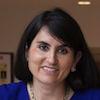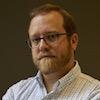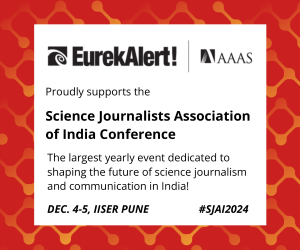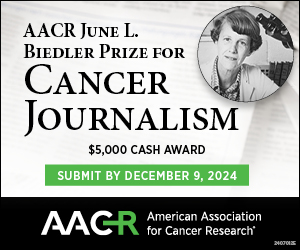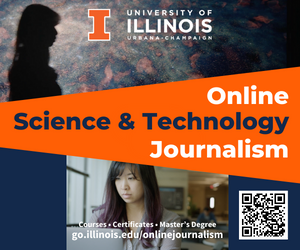
#SciWriLive: Preprints in the time of COVID-19
Watch a video of this past event on YouTube.
In the race to learn as much as we can about COVID-19 and the novel coronavirus that causes it, preprints have become many scientists’ #1 tool for releasing new findings to their peers and the public. For science communicators and reporters, that can pose unique challenges in a time when accuracy is more important than ever.
Join a panel of science journalists, editors, and PIOs on Wednesday, June 3 at 2PM Eastern for a special #SciWriLive discussion about the promise and pitfalls of preprints in the ever-changing era of COVID-19.
-
Meagan Phelan, Executive Director, Science Press Package, American Association for the Advancement of Science (AAAS), Washington, DC, USA @MeaganPhelan
-
Jessica Polka, Executive Director, ASAPBio, Cambridge, MA, USA, @jessicapolka
-
Tom Ulrich, Associate Director for Science Communications, The Broad Institute, Cambridge, MA, USA, @scribbler_tom
-
Wudan Yan, freelance journalist, @wudanyan
The session will be moderated by Lauren K. Wolf, Deputy Editorial Director and Executive Editor for Science, Chemical & Engineering News, Washington, DC, USA, @laurenkwolf
Meagan Phelan is the Executive Director of the Science Press Package at AAAS/Science, where she oversees efforts to boost the visibility of forthcoming studies from the six Science family journals to 6,000+ reporters worldwide. Prior to joining AAAS in 2013, she served as a senior writer at AIR Worldwide, where she interacted with scientists and engineers to communicate advances in wind engineering, seismology, climate science, and other fields. Previously, she was a science writer at the Memorial Sloan-Kettering Cancer Center. Jessica Polka, Ph.D., serves as Executive Director of ASAPbio, a researcher-driven nonprofit organization working to promote innovation and transparency in life sciences publishing in areas such as preprinting and open peer review. Prior to this, she performed postdoctoral research in the department of Systems Biology at Harvard Medical School following a Ph.D. in Biochemistry & Cell Biology from UCSF. Jessica is also a Plan S Ambassador, an affiliate of the Knowledge Futures Group, and a steering committee member of Rescuing Biomedical Research. Tom Ulrich is the associate director for science communications at the Broad Institute in Cambridge, Mass., where he works to highlight the efforts of researchers at the institute and its partner institutions. He has been writing and communicating about scientific research for a variety of audiences since 2000, with stints in philanthropy, public relations, marketing, and healthcare communications. Tom holds master's degree in microbiology and immunology from the Johns Hopkins Bloomberg School of Public Health. He lives in Boston. Wudan Yan is an independent journalist, photographer, and fact-checker. Her writing about science, health, environment, global development, and human rights has appeared in the California Sunday Magazine, Discover, High Country News, Mongabay, the New Yorker, The New York Times, PRI, and STAT News, among others. Wudan co-hosts with Jenni Gritters The Writer’s Co-Op, a business podcast for freelancers, which recently won an NASW Idea Grant. She lives in Seattle with her partner and German Shepherd destructo-pup named June. Lauren K. Wolf is the science desk editor for Chemical & Engineering News, published by the American Chemical Society. She manages a group of 10 reporters and editors to produce must-read, -see, and -hear stories about the molecular world, including those about materials chemistry, space chemistry, nanotech, and more. Before C&EN, Lauren burned things in a dark laser lab as a postdoc at the National Institute of Standards & Technology. She lives and works in Washington, DC, with her husband and fluffy pup, Widget.Special thanks to Tom and Lauren for their enthusiasm in organizing this virtual event, which is based on their successful ScienceWriters2018 session on preprints, and to Jessica, Meagan, and Wudan for contributing their time and perspectives.
Preprints in the time of COVID-19
Wednesday, June 3 at 2:00 ET
Bring your questions. We will use the chat function to solicit questions from attendees.
Click here for information on how to join the Zoom meeting.
Members, login to access the link.
Not a member? Join today to support science writing during this critical time and be part of a community of ~2,300 journalists, authors, editors, producers, public information officers, students and people who write and produce material intended to inform the public about science, health, engineering, and technology.
